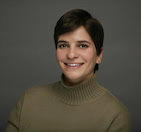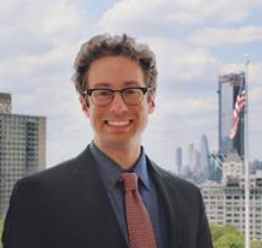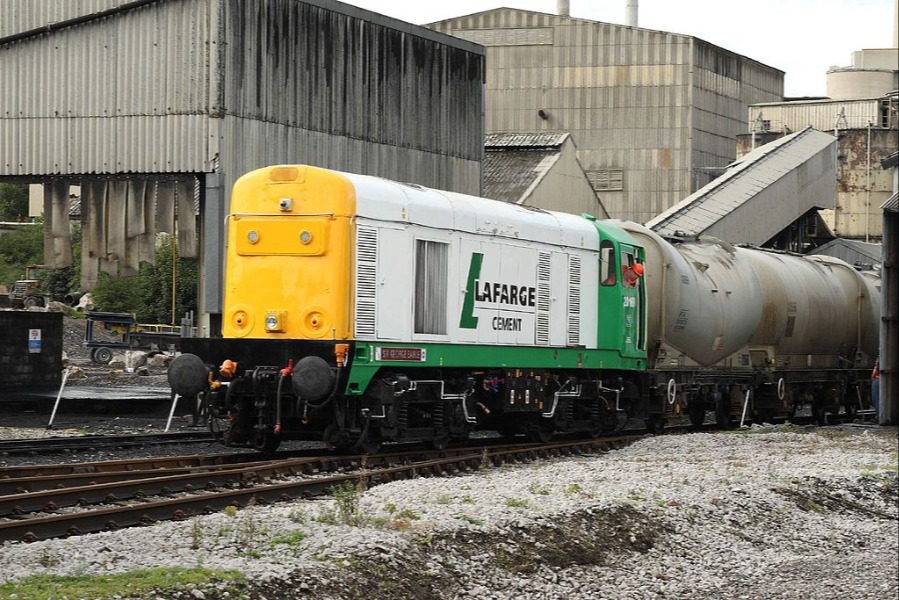Last Week at the Military Commissions: The Defense Moves on the Classification Review Process
Published by The Lawfare Institute
in Cooperation With

With a new judge presiding, the military commission in United States v. Khalid Sheikh Mohammed, et al. (the 9/11 military commission) reconvened July 22-26. See here for previous coverage on Lawfare.
The multiday session was originally intended to hear arguments on multiple motions, including defense motions on the classification review process, which tried to obtain a list of all defense records provided to the government by the convening authority and to make State Department cables on the topic of torture available to the defense team, but the session also covered other items. Our coverage of the proceedings was slowed by a substantial delay in the posting of the official transcripts for the proceedings by the Office of the Military Commissions.
Monday, July 22, 2019
Presiding military judge Col. Shane Cohen began the July 22 session, as usual, by noting for the record the members of each defense team and the prosecution who were present. After summarizing an earlier trial conference and addressing some staffing issues on the defense teams, Cohen turned to the motion to reconsider former military judge Col. Keith Parrella’s ruling in Appellate Exhibit (AE) 118M relating to the discovery process. Clay Trivett, on behalf of the government, argued that the infrastructure the government put in place to answer the defense’s requests, as well as the demands of Parrella’s initial ruling, is not sufficient. Trivett noted that many of the requested documents are not owned by the Defense Department and argued that the current system could not retrieve them in a timely manner. Trivett argued that Cohen should place the Washington Headquarters Services Office of Special Security (WHS OSS) in charge of this and make the prosecution team the liaison between the defense and WHS OSS.
James Connell, counsel for defendant Ammar al-Baluchi, responded by asking for an order to meet and confer with representatives from the prosecution, the interested defense teams, the Defense Department Security Classification/Declassification Review Team (SC/DRT) and WHS OSS. During this meeting, Connell said all the stakeholders should discuss each organization’s constraints and try to determine how the declassification should work. Connell stated that the defense team has come to understand and trust WHS OSS. But he also maintained that the system proposed by the prosecution takes a significant amount of time and does not provide the defense with a way to use “originator controlled” documents, which prevented the defense team from using those materials without the producing agency’s consent.
Connell reminded Cohen that after Parrella found that the prior system constituted an unreasonable delay and restructured the discovery process, there has been no additional ruling on the issue. Cohen concluded that he wanted to review Parrella’s order and have the government and defense teams try to reach a compromise.
After a brief recess, the commission turned to the defense’s motion to halt any disclosure of defense information to the prosecution and compel the convening authority to provide the defense with a list of any information the convening authority had already shared with the prosecution. Judge Advocate Maj. Virginia Bare argued that such transfers jeopardize the convening authority’s neutrality, risk revealing the defense’s litigation strategy and violate the defense’s right to an accounting of the information the government wants. Bare also informed Cohen that both the prosecution and the convening authority advised defense counsel not to approach the convening authority with discovery requests or questions. This meant that the defense team could not ask the convening authority what defense files it had shared with the prosecution.
Edward Ryan replied for the government and argued that the only thing at issue was one nonprivileged classified document that the convening authority should have shared because it was material to a matter before the military commission and the defense knew what the document discussed.
Cheryl Bormann, counsel for Walid bin Attash, responded that the convening authority was not providing the defense teams with the same information it provided the prosecution, nor telling the defense teams what files it was sharing. Bare added that this was not about the defense collecting information, but just understanding what information had been shared. He noted that this was just another incident in a series of intrusions into the defense team, which included listening devices in client meetings and spies placed on the defense team.
After this discussion, Cohen stated that he was going to order an in camera review of the prosecution’s discovery request and then issue a rule as to whether it should be released.
The commission then shifted to al-Baluchi’s motion to compel the government to disclose certain U.S. diplomatic correspondence that characterized his treatment as torture. Benjamin Farley, counsel for al-Baluchi, argued that al-Baluchi is entitled to this correspondence under Brady vs. Maryland and Rule 701(c) of the Rules for Military Commissions (RMC) because the correspondence serves as exculpatory or material evidence. He maintained that the diplomatic correspondence at issue shows that the inherently coercive nature of al-Baluchi’s time in U.S. custody precludes the government from using his statements against him at trial.
Cohen questioned why the defense requested correspondence from 1994 until 2007. Farley responded that the goal was to demonstrate that the legal and policy decisions made prior to and after September 11, 2001, differed significantly. In that regard he conceded that a court order to produce diplomatic correspondence beginning on January 1, 1999 (the date of the U.S. ratification of the Convention against Torture) would be satisfactory.
Rita Radostitz, counsel for defendant Khalid Sheikh Mohammed, added that the defense had filed a motion for a Kastigar hearing to obtain a judicial decision regarding whether any statements from Mohammed or the other defendants were derived from torture—an assessment, per Kastigar, that must be made by a judge and not the government.
Following a recess, Trivett argued on behalf of the government that the defense’s discovery motion was overly broad and speculative. Trivett refuted Radostitz’s assertion that any U.S. government official can make legally binding determinations that certain acts constitute torture. Rather, he noted that the Office of Legal Counsel (OLC) in the U.S. Department of Justice was asked to make determinations about specific enhanced interrogation techniques and found that the activities germane to this case should not be considered torture. Trivett cautioned the commission against any attempt to advance moral, rather than legal, arguments on the issue of torture. Trivett then stated that any cables were not valid evidence given the OLC’s rulings and that the issue of outrageous government conduct should be briefed by both sides before the commission issues any discovery ruling.
Cohen subsequently asked what the government’s position would be should it transpire that a State Department official had defined waterboarding, for example, as torture, during the time period between Jan. 1, 2000, and Sept. 10, 2001. Trivett responded that the government’s position would likely be that the information requested is not discoverable and, in the alternative, should not be admitted.
Farley responded on behalf of the defense. He emphasized that the materials sought are intended for use in supporting members’ independent moral reasoning during mitigation. Farley also noted that the sought-after cables have been digitized and are stored in machine-searchable databases, reducing the government’s discovery burden. Radostitz then cited Kyles v. Whitley in support of the proposition that the government prosecutors are obligated to ask the State Department whether the materials in question are obtainable.
Similarly, Walter Ruiz, counsel for defendant Mustafa Ahmed al-Hawsawi, stated that the commission should not define the scope of mitigation at this phase in the proceedings and acknowledged that discoverable materials may not ultimately be admissible. Ruiz disagreed with Trivett’s assessment that his client seeks to avoid a capital trial, pointing to the fact that al-Hawsawi has sought to sever his case to avoid certain delays. Ruiz closed his comments by stating that the defense intends to file an outrageous government conduct motion in due course, once all the necessary facts are collected.
James Harrington, counsel for Ramzi bin al-Shibh, then noted that his client continues to face problems with respect to treatment in detention.
Cohen noted that the next day’s session would be closed, and the commission went into recess.
Wednesday, July 24, 2019
Following Tuesday’s closed session, Cohen opened the proceedings on Wednesday by taking attendance and noting that defendants al-Baluchi and al-Hawsawi had waived their right to attend the proceedings. Ruiz also briefly discussed the status of a possible stipulation that would eliminate the need for Col. Steven Yamashita, the commander of the Joint Detention Group, Joint Task-Force Guantanamo, to testify.
Discussion then opened on the issue of whether the testimony of a former CIA interpreter who served as a translator for the defense should be held in open or closed session, or in a bifurcated proceeding.
Cohen acknowledged that the interpreter in question had worked for the defense without their knowledge of his prior role with the CIA but stated that it is not the commission’s role to investigate leaks of classified information. As such, he asked that any filings address only whether the interpreter in the defense linguist pool was placed there without the government’s knowledge.
Trivett argued for the government that the interpreter had previously been thoroughly interviewed, mitigating the need for his deposition. Trivett also stated that, should the commission deny the motion to reconsider or request the interpreter’s testimony in an open session, the government would assert its national security privilege.
Trivett cited several cases, including Press-Enterprise Co. v. Superior Court of California, Waller v. Georgia and United States v. Marzook, in support of the proposition that national security information and witness protection are compelling government interests that can necessitate closed hearings. Trivett also argued that methods to protect national security information or witnesses are not infallible, particularly when the witness’s identity has previously been revealed.
Cohen noted that, in order to ask the Court of Military Commission Review to review its stay of the interpreter’s testimony, the government would need to provide specific evidence of the risks it had highlighted. Trivett stated that the director of the CIA had provided a declaration and pointed to a second ex parte classified declaration. He also asserted that the government was surprised that the defense translator had formerly worked for the CIA and agreed to submit a declaration addressing whether the government played a role in placing the former interpreter in the defense translator pool.
After a short recess, Alka Pradhan, defense counsel for al-Baluchi, began her comments by stating that the interpreter’s testimony is essentially a motion for discovery, in response to the interpreter’s inconsistent testimony in prior depositions.
Proceedings were briefly interrupted after the government mistakenly asserted national security privilege. Pradhan resumed by noting that the previous commission judge had made clear that the defense could question the interpreter on (a) any potential substantial contacts with defendants at the black sites, including possible observations about conditions of confinement and interrogations, and (b) information about the events leading to the interpreter’s being placed on a defense team.
However, Pradhan also stated that new facts—including that government agencies had access to attorney-client privileged conversations during commission proceedings and that the prosecution had accessed thousands of defense emails—require additional questioning under oath. She argued that these and other incidents had a significant chilling effect on the defense. Pradhan also said that the government has not demonstrated that the potential for continued harm to the interpreter or national security is sufficiently high to outweigh the defendants’ interest in a public hearing.
After the lunch recess, Radostitz intervened, noting that the government intrusion into the defense’s work extends earlier than the present example of the interpreter, giving rise to suspicions that the interpreter was intentionally placed in the translator pool. William Montross, representing bin Attash, also echoed earlier statements that the interpreter had previously falsely denied any involvement with the CIA to other members of the defense team, further underlining the need for testimony under oath.
Cohen then opened discussion of AE 642, on the status of discovery related to whether the United States was engaged in hostilities on Sept. 11, 2001. Farley began, saying that al-Baluchi was pursuing discovery based on the government’s model of hostilities. He stated that the government has collected more than 600,000 pages in relation to this discovery request but has disclosed only slightly more than 5,000 pages, many of which have been heavily redacted without judicial review.
Farley argued that understanding whether the United States was in an armed conflict with al-Qaeda at the time of the Sept. 11 attacks is critical because the defendants have been charged with war crimes—crimes that could not have been committed outside of a war.
Citing the Tadic factors (which are used to determine the existence of an armed conflict), Farley emphasized that fighting between parties must occur on a sustained and systematic basis to constitute an armed conflict, including noninternational armed conflicts.
Trivett then argued for the government that the Sept. 11 attacks were governed by the laws of war and that discovery on this particular issue has already been conducted consistent with Hamdan and Bahlul.
After a short recess, Farley responded to the government, arguing primarily that only a state has the legal authority to declare war or to bring about a state of hostilities, and that a state may use force against an organized nonstate armed group without triggering the laws of war.
In the final moments of the day’s session, Cohen asked that the government review its decisions on the defense’s discovery requests and said that the defense could subsequently file motions to compel discovery if necessary.
The session then went into recess.
Thursday, July 25, 2019
After a closed RMC 806 hearing in the morning of July 25, unclassified arguments continued in the afternoon. All five defendants waived their right to attend the proceedings. In light of the previous day’s discussion regarding the former CIA interpreter’s testimony, Cohen determined that a deposition is most appropriate and said that the scope of the deposition will be determined in a forthcoming written ruling.
Col. Yamashita was then called to testify. The commander of the Joint Detention Group, Yamashita testified that he is responsible for the safe, humane and legal detention of law of armed conflict detainees at Guantanamo Bay. He explained that his authority extends to Camp VII, the high-value detainee detention camp, and that he visits the camp one to two times a week. He acknowledged that he has nearly complete, if not complete, knowledge of the safety and security features in Camp VII that relate to detention.
Yamashita then testified as to the layout of the tier in which al-Hawsawi resides, and on al-Hawsawi’s access to a laptop—4 hours in a 24-hour period, divided into 2-hour periods, including from 2:00 a.m. to 4:00 a.m.. While he said he was not familiar with the model of computer al-Hawsawi uses, he testified that he is aware of the security measures taken to ensure the laptop is safe to enter the detention facility (including lack of WiFi capability). He also said that he is not aware of any violations by al-Hawsawi regarding his laptop use. Finally, Yamashita noted that the camp is currently in the process of developing a standard operating procedure for Camp VII, including the use of laptops by detainees.
Upon cross-examination, Yamashita agreed with the previous commission judge’s (Judge Pohl) statement that the potential ability of detainees to bypass disabled communication capabilities may pose a risk to force protection and potentially to national security.
The open testimony then ended and Yamashita continued his testimony in closed session.
Friday, July 26, 2019
Cohen began the July 26 session, as usual, by noting for the record which defendants, members of each defense team and members of the prosecution were present. A witness then testified that the defendants who were not present voluntarily waived their right to attend the hearing.
Cohen then noted that Thursday’s classified cession dealt with the admissibility of Col. Yamashita’s classified testimony and addressed the AE 639 motion series that focused on setting a trial timeline. Cohen acknowledged a pending motion to reconsider prior Judge Parrella’s decision admitting the FBI’s statements for all purposes, and Ruiz informed the commission that yesterday he received a document he believed rebutted Col. Yamashita’s testimony. The commission accepted the document into evidence.
The commission then turned to discussing the upcoming September suppression hearings. Both the government and the defense stated that they were ready to hear testimony related to their evidentiary motions. Connell added two caveats: Evidence related to FBI Special Agent Gaudin might need a separate hearing because the discovery surrounding his statements have a unique set of issues; and several ex parte pleadings should be decided after the suppression hearing instead of before. Trivett, counsel for the government, agreed with Connell’s assessment.
Trivett and Connell agreed that the witnesses who testify in the September suppression hearings should also, when relevant, be questioned on ex parte pleadings. Ruiz noted that while some defendants are taking the approach that their statements were involuntary, others want to be able to argue a suppression motion.
Cohen stressed that all testimony should occur before the final suppression motions and arguments were submitted because the testimony would likely influence the structure of those motions. Cohen recognized that this might require the commission to recall witnesses or allow the defense to depose them separately. Cohen observed that these suppression hearings gave the defense an opportunity to cross the prosecution’s witnesses on topics beyond the current suppression motions.
Cohen did not define what questions were off limits to the defense at these hearings. Harrington expressed concern that this approach would not give the defense the time it needed with these witnesses. But Cohen reassured him that the commission would allow for follow-up testimony at a later date if necessary.
The commission then turned its attention to AE 639—the prosecution’s motion to set a trial date. In support of this motion, Ryan argued that a trial date would generate the necessary commitments and priority across all of the government components involved. Ryan stressed that the current process was weighed down by the federal government’s declassification and approval processes, but the government is on track to conclude discovery by Sept. 1, 2019. Ryan added that a schedule would give Americans and, specifically, the families of 9/11 victims a clear timeline to see the attack’s perpetrators stand trial.
Connell spoke for the defense against the prosecution’s motion. He argued that the number of canceled and delayed hearings, coupled with the complex issues of law and fact in this case, meant trial preparations and preliminary motions would take much longer to litigate. Instead of hard dates, Connell advocated for a loser benchmark approach. Connell then agreed with Cohen that a good compromise would be to schedule a hard date for the end of discovery and change later deadlines only when earlier ones were not met.
David Nevin, counsel for Mohammed, then argued that torture was at the center of all the problems and delays in this case because the government used the classifiation of information to limit how the defense developed its theory of the case. Nevin added that the government has provided the defense with less than 1% of the material covering Guantanamo Bay and there have been several occasions when the government claimed discovery was almost complete, only for the defense to find out later that there was more exculpatory material.
Bormann then described how the slow discovery process and unexpected bureaucratic inefficiencies at Guantanamo Bay made setting a date for a trial very difficult. Bormann stated that if she were in Cohen’s position she would set a date to conclude discovery, litigate everything else while that process was completed, and then determine how long the defense would need for follow-up discovery and additional motions.
Harrington later added that the prosecution wanted a faster trial because it was to their advantage not to have the defense go through all the evidence and develop a separate theory of the case.
Ruiz concluded the day by highlighting for the commission that the prosecution has been trying to set a hard trial date for a long time but no military commission judge has agreed to this because the government has not provided a concrete plan for managing the bureaucratic and legal hurdles necessary to ensure a fair trial.
Cohen concluded by telling the parties that he would issue further guidance and that the commission would continue in September.






